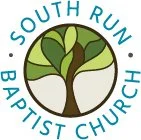Today is the third week of our series, Better Together. We are looking at our church’s core values, and today we will be exploring “Our Mission.” The three values of “Grounding”, “Discipleship”, and “Mission” are inextricably tied together, one growing out of the next, much like the soil and tree analogy we have been using. Our Grounding in Christ leads to the need for Discipleship which produces the fruit of the Mission. The mission we participate in is the same mission God has been on throughout history — the redemption and reconciliation of the world. God has called us and sends us to participate in that mission with Him.
Our Discipleship
Continuing our series on regathering and reconnecting as a church, we turn our focus to the second of our core values: Our Discipleship. If Christianity begins with being rooted in Christ, the next step is to cultivate that which Christ is growing within us. We believe that the best context for such cultivation, perhaps the only context, is within and among a body of believers who offer space for pruning and training and flourishing. Discipleship is not just “better together,” it requires togetherness, and we at South Run believe this sits at the heart of why we exist.
Our Grounding
Today begins a new series titled Better Together where we will explore the importance of gathering as a church body. The first five weeks will cover our church’s core values. The core values represent those things that we hold dear and the things that define us. They represent both who we are and what we strive to be. They are descriptive and aspirational. Today we begin with the primary value, the one that we hold nearest to our core: that all we do and all we are is rooted in the person and work of Christ.
The Gift
The story of Anna in Luke 2 is the second half of the story we read last week about Simeon. We learned that Simeon’s name means “He has heard,” and Simeon indeed heard God and listened to God’s call on his life. And through Simeon’s faithfulness, he encountered the baby Jesus in the temple and witnessed the one who would bring salvation to the world. Anna’s name, on the other hand, means “grace or favor.” Or more simply yet, “gift.” Anna, because of her patience and willingness to wait on God, was able to see what others were not able to see. Where everyone else at the temple saw a baby, Anna, like Simeon, saw the one who would bring redemption to Jerusalem and beyond.
Go in Peace
Today’s passage from Luke 2 contains a litany of themes in a very short passage. Here, Simeon has been awaiting the Messiah. He speaks of the consolation of Israel. He recognizes in Jesus the fulfillment of Old Testament promises. He talks of salvation, revelation, and glory. And as we have been talking about for weeks now, he requests peace. This beautiful passage that tells of the very beginning of Jesus’ life is like a symphony of themes about what we can expect from Jesus’ life. And if you know your gospel, you know that Jesus delivers.
The Pronouncement of Peace
Just prior to Jesus’ birth, a mass of angels appeared over the fields of Bethlehem, giving the shepherds a concert they would never forget. The angels, in unison, offer glory to God and promise peace on earth. But what kind of peace? And how does God’s glory fit into that promise? And what does all of this mean for us?
The Path of Peace
Today is the second Sunday of Advent. In our New Testament reading for today, John the Baptist’s father, Zechariah, offers a word of hope and a promise of redemption that surely resonates as much today as it did way back when. The conclusion of the proclamation is that the road lit with the light of heaven is a road that leads to peace. As Jesus himself teaches us to pray, may it be on earth as it is in heaven.
Prince of Peace
As we approach Christmas, we might be tempted to believe that Christ’s birth took place in a perfectly preserved state of peace, because that’s what we all hope our Christmas’s will look like. This, however, is a fiction. The chaos surrounding Jesus’ birth is almost unspeakable. Every last person near to him was affected by the chaos. It seemed to follow him wherever he went. No, Jesus was not born into a world of peace. If was going to embody the Prince of Peace promised in Isaiah, he had a lot of work to do.
Give Thanks
This week we celebrate the holiday of Thanksgiving. It is an appropriate time of year to focus on gratitude and giving thanks. The benefits of being grateful are many. Thankfulness is connected to joy, peace, awe, and wonder, and so there is good reason to be thankful people. More important than the benefits, however, is that the proper response to the gospel is gratitude. Grace and gratitude are interwoven, and in the face of the overwhelming grace of Christ, are hearts are to be full of thanks.
Breaking Bread
If you’re like 48% of families in the United States, then you say grace before meals. And if you do, it might include a thanksgiving or a blessing of some kind. You might be surprised to find that Jesus and Paul said prayers before their meals too. There is almost a rhythm to it in Scripture. Taking bread, giving thanks, breaking it, and sharing. Today I want to stop and think about the humble practice of praying before meals. And, more importantly, I want to reflect on giving thanks.
Jonah: Part 5
Today we conclude our series on Jonah. The book is just four short chapters but is chock full of biblical themes. Salvation stands at the center of it all and is flanked by themes of grace, mercy, repentance, calling, abundance, and so much more. But if you thought that Jonah had repented of his ways and began to follow God whole-heartedly, the final chapter of the book comes as a surprise. But even at the end, God is not finished with him. God does not give up on him. And God is not done with you either.
Jonah: Part 4
The book of Jonah is about the abounding grace of God. Grace is, of course, not deserved. It is a gift that is not earned or demanded but is freely given by God to those in need of it. And we are all in need of it. Though Jonah’s job is to tell the Ninevites of their desperate estate, salvation belongs to our God.
Jonah: Part 3
Jonah: Part 2
Today we continue with the second week in the book of Jonah. There is a theme that arises in the first chapter that might be easy to miss if you’re not looking for it: FEAR. The fear comes in different forms. Fear of the storm. Fear of the situation that Jonah has created. And, most importantly, fear of God. Scripture says quite a lot about the fear of God. It is typically encouraged as a path to wisdom, but why and what that looks like is not always clear. There are certainly healthy and unhealthy fears. Let’s spend some time today thinking about how to cultivate a healthy fear of God.
Jonah
The story of Jonah is perplexing. He is a prophet, but he does not act like a prophet. He hears the Word of the Lord, but he is reluctant to share it. He experiences God, but at every turn he is pushing away from this experience. After his famous near-death-experience, he gets himself back “on track.” But when he watches God demonstrate mercy on the city of Nineveh after the people repent, instead of rejoicing, he complains. The story of Jonah is indeed perplexing, but it is also compelling, and what it can teach us about God is illuminating. Let’s dive in.
Mercy, Not Sacrifice
In our reading from Matthew today, we see two stories that are clearly connected. The first is what looks to be a simple, one-verse, narration of Matthew’s own call to discipleship. The second is the Pharisees’ questioning of Jesus over who he chooses to surround himself with. By choosing Matthew, a tax collector and therefore a sellout to the Romans, Jesus demonstrates that he can see what others cannot see. When Jesus looks at Matthew, he does not see a sellout. His eyes of mercy allow him to see beyond the faults and the failures into the heart of someone who needs healing. But even beyond that, he sees a heart that—once healed—will write the story of Jesus that will bring untold healing in Jesus’ name.
Great Harvest
It’s Labor Day weekend, and I want to spend a little time thinking about labor. Not so much the labor you do at your job. Or that other kind of labor. I’m talking about kingdom work. This summer we spent a good deal of time on “sanctuary” and what that means for our church. One theme that arose again and again, for me, was the relationship between resting and working. It’s something I’ve continued to wrestle with, and as we head into a new church year, I want to return to it one more time.
One Thing
Jesus tells Martha that she’s doing many things, and it is causing anxiety and worry. But he praises Mary for doing one thing, because she has chosen the one necessary thing. One necessary thing. What is it? What has Mary figured out that Martha has not? It is the same thing that the psalmist has figured out when he says, “One thing have I asked of the Lord . . . that I may dwell in the house of the Lord."
Help My Unbelief
Life can be hard. For many of us, this week has been hard. News from Afghanistan and the increased spread of the Delta variant has many of us saddened about our past, confused about the present, and worried about the future. Add to this, we all have personal trials and fears that are too deep to mention aloud. Keeping faith in the middle of life’s storms can be difficult, but we are not left to our own devices. When belief and unbelief rise up side-by-side within us as the storm clouds surround us, let us continue to walk step-by-step together in the grace God has given us, trusting that our affliction is momentary and God’s goodness is infinite.
The Bread of Life
Last week, through the story of the fish and the loaves, we encountered God’s abundant provision, the hurdles of faith experienced by Philip and Andrew, and the deeper rhythms of faith that God is calling us into as followers of Christ. This week, Jesus builds upon this same story and continues the conversation. Jesus takes the opportunity to clarify what might have been missed in the miracle of the feeding of the 5000. He proclaims one of his famous one-liners saying, “I am the bread of life.” Let us not miss the deeper significance at work here.

